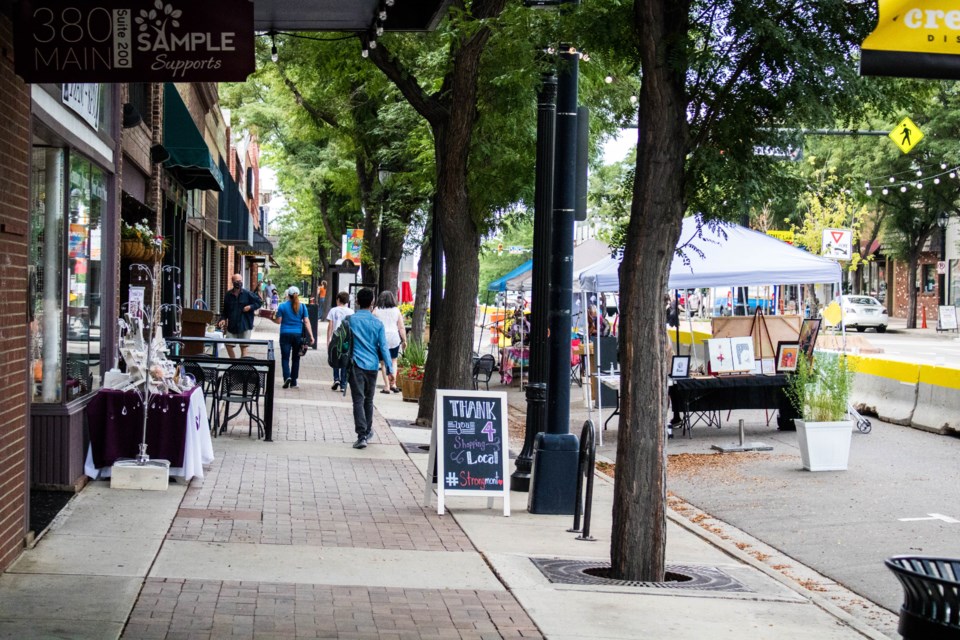Across the country COVID-19 has highlighted economic disparities between local small businesses and their national or international counterparts. Across the country, companies with corporate resources have been better prepared to handle the economic fallout of the virus while small businesses struggle to respond.
While the true toll the pandemic has had and will have on Longmont is unknown, national estimates suggest that as many as 2% of all small businesses nationwide may have closed and many more will continue to close.
Scott Cook, CEO of the Longmont Area Chamber of Commerce, in an email said 10 member businesses have closed as a result of difficulties caused by the pandemic.
Local businesses employ thousands of Longmonters, provide valuable services for Longmont consumers and have rich histories as meeting and gathering places. They also generate greater community economic activity and prosperity than large national chains, said Colin Argys, event coordinator at the Longmont Downtown Development Authority.
“On average, spending $100 at a locally owned small business generates $68 of local economic activity. Local business generates about 70% more local activity per square foot than big-box retail,” he said via email.
National and international studies have found that shopping local results in more money remaining in communities. Studies also find local businesses create more jobs and retain more during economic downturns. Local businesses also have been linked to lower rates of poverty in the communities they serve. And data has found small businesses donate, on average, 250% more to their communities.
Peter Salas, chairman of The Latino Chamber of Commerce of Boulder County, said that although large businesses are struggling, they have more assets and ability to adapt to changing conditions.
Cook of the Longmont Chamber agreed: “I do think that our national chains have some resources and backing and things that our local businesses just don’t.”
Large retailers and restaurant chains have good relationships with banks and greater access to the capital needed to survive economic downturns and implement new safety procedures in response to COVID-19, Salas said.
In addition, many chains are designed in such a way that made the transition to post-pandemic business easier, he said.
Features such as drive-thrus, a staple in many chain restaurants not as common in local ones, allowed for quick adaptation to a post-pandemic world. In addition, many large businesses already had robust online ordering takeout and delivery systems that allowed them to quickly adapt.
LDDA’s Argys said, “Local businesses do not have the corporate resources or safety net to rely on in these times. Often, local businesses are family owned, with all resources tied to the business.”
Sean Gafner, owner of The Roost, said the pandemic “has been the single hardest thing we’ve gone through since we opened our doors.” The restaurant opened in 2015 at 526 Main St.
“We not only have lost $950,000 in sales (about $150,000 in profit), but we actually lost $234,000 in cash to cover expenses, invoices, bills, etc.,” he said.
Limited seating capacity to comply with state orders and costs of personal protective equipment also take their toll on small businesses, said Gafner and Sarah Morgan, owner of Martini’s Bistro. Restaurants can only seat half of their indoor capacity or 50 people, whichever is less, under Colorado’s guidelines. Gloves can cost $45 to $125 per case, Morgan said. And fewer people eating out is compounding issues for restaurants, they said.
Facing those costs and consumer concerns, some restaurants have opted not to reopen to in-person patrons.
“We are doing OK with takeouts. We are not sure about opening our (dining room) yet,” said Sukhi Kaur, co-owner of Flavor of India at 370 Main St.
Restaurants are not the only small businesses that are affected. Cook said, “We’ve been very concerned for our restaurants, for our small retailers, for our ‘nonessential’ businesses and ‘nonessential’ employees.”
Ricardo Cabrera, project manager at the Latino Chamber, said many small retailers and purveyors of specialty goods were forced to close because they were deemed “nonessential,” while others have struggled to reopen in a way that is compliant with statewide restrictions.
Many minority-owned businesses are less likely to have reserves to weather a financial emergency, and often don’t have established relationships with banks to gain easier or more immediate access to aid programs, he said. In the case of some Latino-owned businesses, Spanish speakers often don’t apply for available aid because of language barriers, he said.
Because many Latino-owned small businesses are home-based or don’t operate out of traditional storefronts, Cabrera said it is difficult to know how many have closed as a result of the pandemic.
But those businesses are important to the local economy, he said, and their closure could have a ripple effect. If employees lose their jobs, they will spend less in the community and could need more services from local nonprofit organizations, Cabrera said.
When small business owners and experts were asked what Longmonters can do to help, they overwhelmingly called for consumers to obey public health guidelines to prevent another shutdown and to spend money at local businesses and restaurants if they are able. Some owners also asked for customers to have patience. Others asked patrons to leave good reviews for their favorite businesses, to buy gift cards, and to give positive recommendations to friends.



